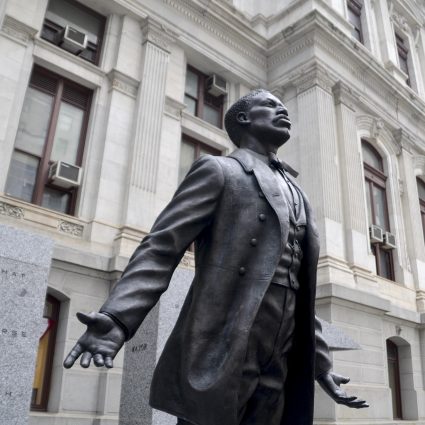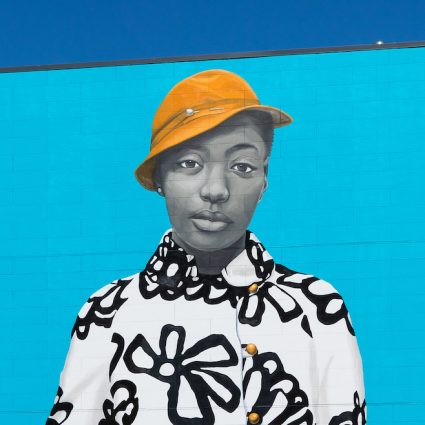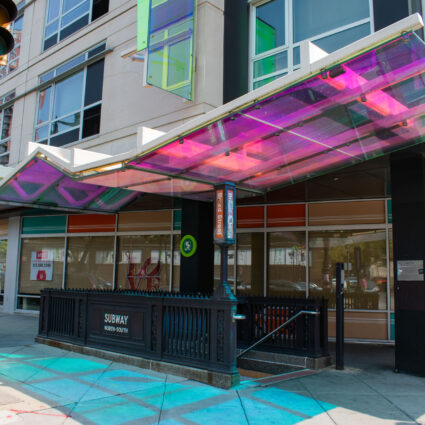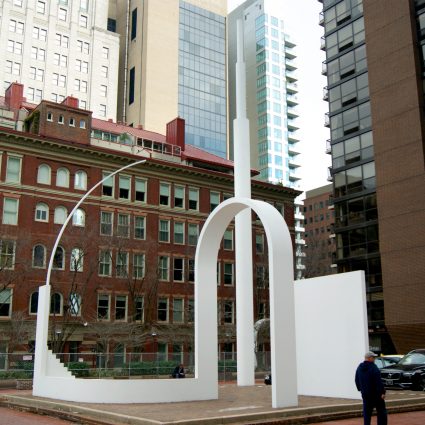Please note that this artwork is no longer on view. Thank you for visiting!
The Association for Public Art (aPA) in partnership with the Historical Society of Pennsylvania (HSP) commissioned artist Xenobia Bailey to create this singular emblematic image, The Radical Black Elite, which was displayed on street pole banners at 13th and Locust Streets during spring and fall 2024. These artist-designed banners are Bailey’s first public art installation in Philadelphia.
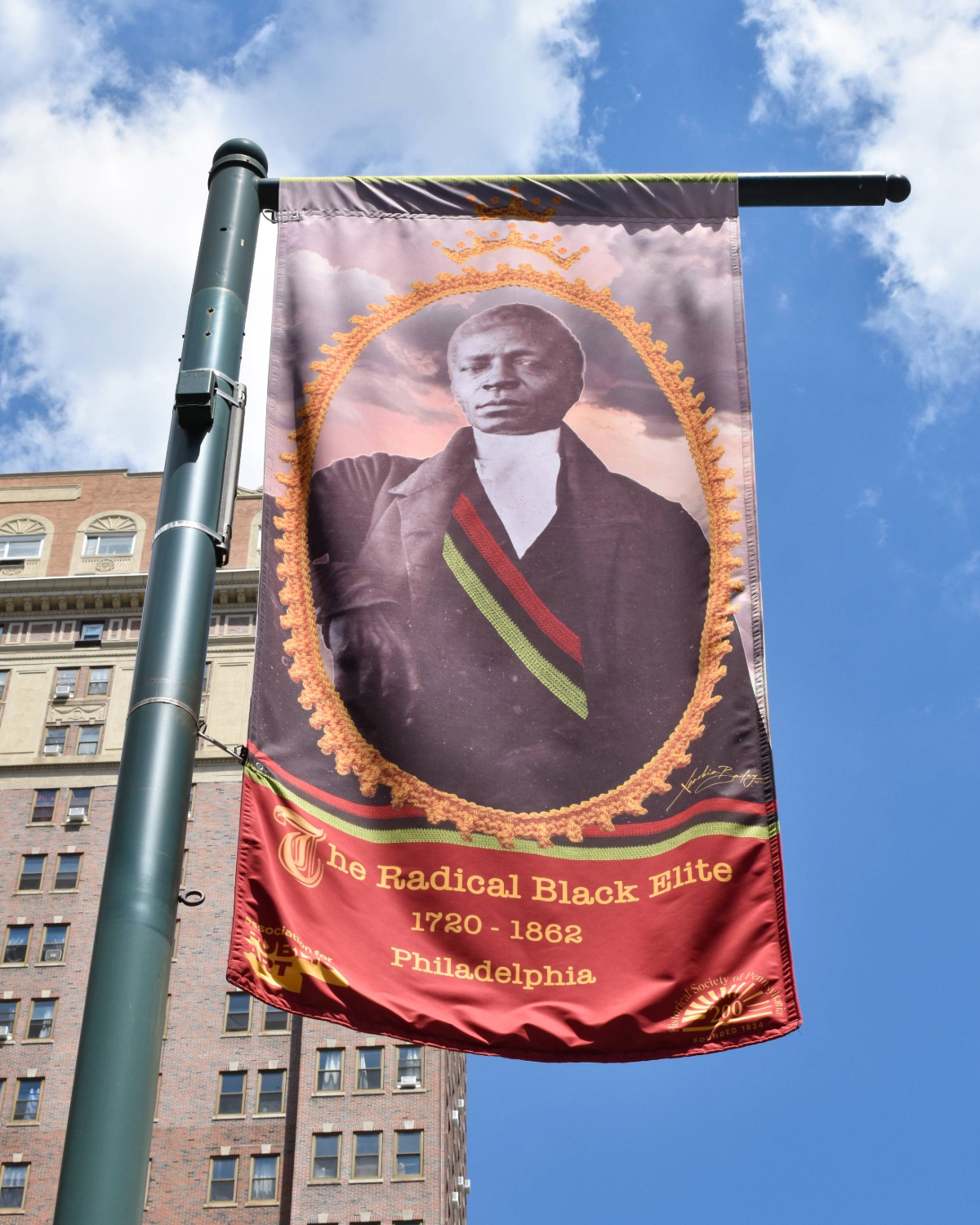
The artwork includes a mid-1800s daguerreotype of a Black man collaged with crocheted gold embellishments, all of which has been digitally reproduced for the banners. Bailey was inspired by Philadelphia’s free Black community in the 1700s and 1800s, about which she expanded her understanding through the archival collections at HSP, with a focus on figures like James Forten. (The image Bailey’s work references is in the collection of The Nelson-Atkins Museum of Art in Kansas City.)
“In this project, Xenobia Bailey has captured the essence of her research into the under-recognized history of Black people in Philadelphia,” said Charlotte Cohen, Executive Director of the Association for Public Art. “We are proud to bring Xenobia’s work to Philadelphia for the first time and look forward to the conversations and further radical thinking that it inspires.”
A Seattle native now based in New York City and Philadelphia, Bailey is a fiber artist, crocheter, designer, researcher, and cultural activist who produces artworks and installations inspired by urban material culture and what she has termed “Funktional Design” – an aesthetic that evolves from the creativity and resourcefulness of rural and urban African American homemakers both historically and today. A student of ethnomusicology and industrial design, Bailey is known for her crocheted sculptural headwear, wall hangings, and tents that articulate the utilitarian material worlds of funk music. Using fiber and found items as her primary materials, she produces a range of pieces that frequently riff on traditional home decor with inventive twists of color and texture, making for an animated lifestyle.
WATCH: Artist talk with Xenobia Bailey presented by the Historical Society of Pennsylvania and the Association for Public Art:
RESOURCES:
- WHYY: Downtown Philadelphia street banners honor a historically Black ‘city within a city’
- Xenobia Bailey for Hyperallergic: The Miraculous Life of an Early Black American Abolitionist and Craftsman
- How to Request Images
Enjoying this content?
Click here to donate and help us continue to tell the story of public art in Philadelphia.
